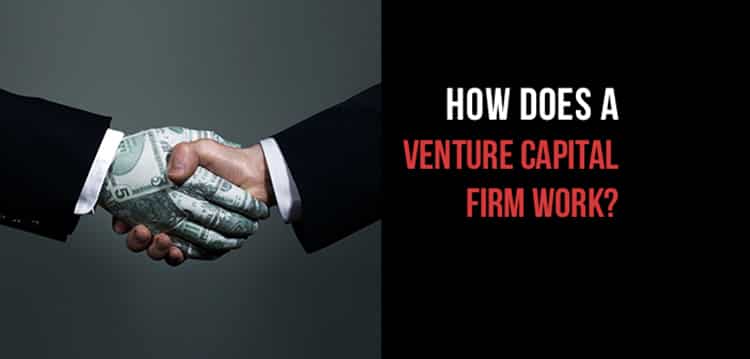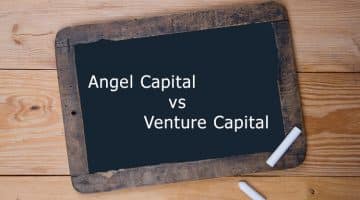You must have heard the word Venture Capital (VC) if you are related to Startups and funding. It is yet another form of funding provided by Investment firms. They were providing this funding to even a ‘great idea’ till the year 2000, but now most of them get into any Startup at a later stage, or at a stage of expansion.
How VC Raises their Money?
The VC industry works with four major players. The Startups who require funds are their customers. The high worth investors who want high returns invest in these companies. Investment bankers also provide funding to VCs. The VCs invest this money in high-potential Startups and expect a hefty return.
What is the VC funding?
VC funding is available to Startups, small and emerging firms in exchange for equity or ownership in the company. Selecting a high-technology company or an innovative idea could be well-paying, or it can fail also. With that risk, the % of the stake the VCs expect in the funded companies is very high. IT, IT-enabled services, Social Media based businesses, and Biotechnology research-based firms are some of the favourite companies where VCs like to invest their money.
Funding Stages
Initially, the company may start with the owner’s contribution. Later some of the owner’s friends and family may invest their money to support the operations. After this stage, there is the first round of private funding, known as ‘seed funding.’ The investment is made available in stages, on achieving certain milestones. The VCs invest for a limited period with an intention to exit with a large fund. They go ahead and invest these funds in the next venture.
At which stage VCs invest their funds?
As mentioned earlier, the VCs are now interested in investing at a later stage. Typically they look at the stage when the company begins to commercialise their products (the interest is always in products more than services). The infrastructure (manufacturing facility) required at this stage will require large funds and the fixed assets are a safe investment for VC. About 80% of the money goes to the infrastructure and growth, and the balance sheet starts looking attractive as there are sufficient assets with the company and the working capital need is there to generate profits. It is not a stage when you are doing freelance jobs, but you have to get into the form of a formal company and take the next steps.
Exit Event
The VC may look at the investment period of typically 3 to 7 years and then exit from the company. At this stage, there are likely buyers for the VC’s stake in the company or large Corporates who are looking for such innovative companies. Alternatively, the company may decide to raise further large funding from public, meaning the initial public offering or an IPO. At this stage, the value of VCs share goes substantially high, and VC will exit with a large cash in their hands. VC will have their person on the board of directors as well as they provide guidance and network to grow the business.
Why do you need VC?
The entrepreneurs with innovative mind have no other sources of funding. They can’t go to the public at such an early stage of business, neither the banks entertain them as they have no assets as a collateral security. If they raise a loan in any other form, immediately the repayment starts along with interest and the cash-in-hand is always a problem for new businesses. In such difficult situation, the VC acts as the best source for them as they have to sell equity, which has no value as on today. The VCs believe you (after several discussions, lot of data and analysis) and invest in your venture based on its tomorrow’s value.
Investment and Contracting
In India, the VCs may start an investment with 25 lakhs also but in the US, they start with $3 million, and most VC funds are not interested in funding which is too small. They get the first right to claim their money in case the venture fails. They get rights on company’s assets and technology also. They try to minimise their risk as much as possible and get involved to make sure the company succeeds, which is in their interest.
The contract is the last stage of this VC after several rounds known as Round A, B, C and so on. In the contract round, there will be fine tuning of all terms and conditions. A formal legal contract is signed, and the VC representative also becomes a part of your board of directors. Only at this stage, you will see real cash deposited in your company’s account for the intended use. If the company starts performing well, more investments are made in stages to bring it to a ‘sellable’ stage as early as possible.
Attractive Returns for VC
Not all ventures will make millions of dollars profit, and in spite of taking all care, investing money and having proper guidance, some will fail. So, the VCs won’t make large money on every single joint venture. With experience, they will invest in niche sectors and the companies where the chances of success are more than 90% reducing their risk considerably, and they may exit with even 50% annual return for their investment period. With the market fundamentals of high-risk high-returns, they work on your business at a stage of ‘just taking that next big step’ and take you to a different level.
Summary:
If you have great innovative ideas, good business plans, readiness to do a lot of hard work and passion for what you do, contacting VCs is a good idea. The freelance websites similar to this one provide a lot of information on funding. They can invest in your idea, take your company to the next level and can either make it ready to sell or at this stage; you can raise large money from stock market through a public offering. Make sure you are aware of all pros and cons of VC funding, sign a proper contract with advice from chartered account and legal advisor and go ahead with it.


